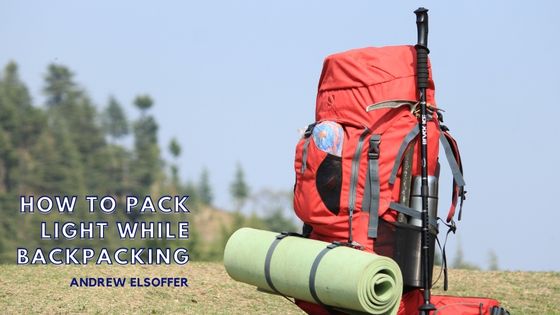An over-packed backpack can ruin an otherwise fun outdoor adventure. There are a few tried-and-true techniques to reduce your load without compromising comfort. Every time you go trekking, make a list of your unused gear. You can leave them behind the next time you gear up for your next trip. Some items, such as an emergency lighter and a few inches of duct tape, should always be kept in your bag.
Repackaging food and toiletries is a good starting point. If going on a short trip, squeeze toothpaste into a smaller container to conserve weight and space. Dump your trail mix into a resealable bag so you can flatten it. Dishes and cups only serve as something to move the food onto before it goes into your mouth. Eat right out of the cooking pot when you’re backpacking. You’ll only have one dish to wash.
Your sleep setup has the most influence on your base weight. A lightweight tent helps reduce the importance of a hiking load. If you currently hike with trekking poles, repurpose those poles to pitch your tent and save on tent poles. Understanding ASTM/ISO ratings and R-value can help you remain comfortable while camping without adding more weight. Find a sleeping setup that meets your requirements for comfort and warmth while keeping size and weight in mind.
Instead of weighing yourself down with books, take pictures of relevant pages. There are many reading apps for your phone if you get bored at night. If you’re concerned about battery life, use airplane mode or don’t use your phone until you absolutely must, and bring a tiny battery pack or recharger. It will still be lighter and smaller than a manual or book.
Making sure you’re hydrated at the beginning of a journey is essential. Plan how much water you need and use a purifier rather than drinkable water. This way, you can go from stream to stream while carrying just a little water. Use collapsable bottles instead of solid ones. Collapsible water bottles let you save money, lessen the amount of clutter in your bag, and lower your plastic impact. Most are pocket-sized and weigh less than 100g when not in use.
Your hiking load extends beyond your pack. A bulky pair of hiking boots add significantly to your overall weight. Think about switching things up with a pair of tough trail runners. Make sure they have the traction and the support you need, but once you take off the boots, you may never put them back on. Before choosing to take them on a week-long adventure in the bush, we advise using them on a few day treks.

